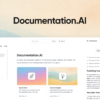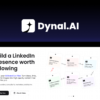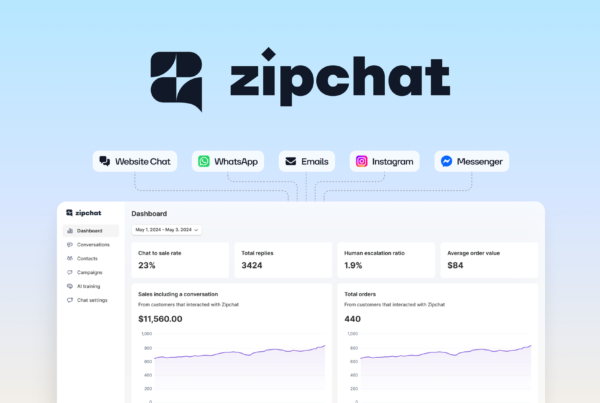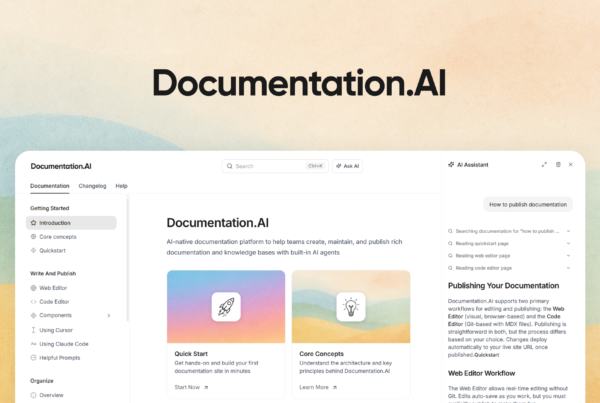The Impact of Artificial Intelligence on Business

In addition, artificial intelligence-trained professionals are better equipped to work with a variety of data, including structured and unstructured data. Furthermore, machine learning algorithms are often more accurate when using artificial intelligence. As a result, AI graduates should be able to effectively use different machine learning algorithm libraries in their decision-making processes.
What is artificial intelligence?

What is artificial intelligence training?
Artificial intelligence (AI) training refers to the process of teaching a machine learning algorithm to recognize patterns in data. This can be a difficult task, as different data sets will often contain unique patterns. AI systems are able to learn these patterns over time, making them more efficient at recognizing and processing data. As a result, AI training can help increase the accuracy of machine learning algorithms. In addition, this technology is often used in conjunction with machine learning algorithms for better results.
Ai can play a chess game but not as well as a human. ai has an artificial intelligence program that helps it make decisions about moves and strategies in a game of chess.
What are the 4 types of artificial intelligence?
Artificial intelligence (AI) is a technology that allows machines to act and think like human beings. There are four general types of AI – machine learning, natural language processing, deep learning and recurrent neural networks. Each has its own strengths and weaknesses, but all are being used in various ways to create algorithms that can identify patterns in data. This is how AI is being used most commonly these days- by automating tasks usually carried out by people or machines such as data labeling and data discovery. As AI becomes more advanced, it will also be put to use improving other parts of a business’ operations- such as decision making or marketing efforts .
How does artificial intelligence work?
Data labeling is a process of automatically labeling data for a machine to understand. This can be a tedious task that requires human intelligence. However, with the help of artificial intelligence, the process can be sped up significantly. AI tools like SEMrush use algorithms to learn patterns and trends from data sets, which in turn improves their accuracy and efficiency. In addition to this, data labeling using AI can also reduce costs when compared to traditional methods. As artificial intelligence becomes more and more prevalent in business, the benefits of using it for data labeling continue to grow. So, why wait? Get started today and reap the rewards!
Applications of artificial intelligence in business
Data labeling and sorting is a tedious and time-consuming task that is becoming increasingly automated with the help of artificial intelligence. AI can help reduce the time and effort required for data entry, making it easier for businesses to get accurate information into their systems. This in turn can improve decision-making by enabling organizations to gather more accurate data faster than ever before. As artificial intelligence becomes more widespread, there are endless applications for it across all industries. For instance, it can help optimize processes and make decisions faster. Additionally, AI can provide insights into customer behavior that can help businesses improve their marketing strategies.
1. AI Application in E-Commerce
Artificial intelligence can help speed up the process of data entry in E-commerce. This can include things like taxonomy creation, product research and sorting, as well as shipping info. By automating these tasks, businesses can save a great deal of time and money. In addition to this, AI is also adept at detecting fraudulent activity which could protect your business from bad reviews or lost sales. Overall, AI has huge potential to improve the efficiency and accuracy of data labeling in E-commerce!
2. Applications of Artificial Intelligence in Lifestyle
There are a number of ways in which artificial intelligence can be applied to life-style decisions. For example, AI could help you choose the right products based on your preferences. It could also improve your dietary choices by suggesting healthier options that you may not have known about before. In addition, AI can assist with fashion choice and style advice. By understanding consumer behavior and trends, it can help lead you in the right direction for achieving success look wise.
3. The Rise of Self-Driving Cars
Artificial intelligence is key to continued development of self-driving cars! As vehicles become autonomous , artificial intelligence will be needed to make decisions regarding traffic, navigation and emergency situations. AI technology has the potential to help reduce road accidents by up to 90%. In addition, it could provide a more personal experience for drivers – learning from their past routes and behaviors in order to improve the accuracy of future predictions. Ultimately, artificial intelligence is poised to play a crucial role in the development of autonomous vehicles and could have a wide-ranging impact on our lives.
4. Applications of Artificial Intelligence in Robotics
Artificial intelligence is being used in a variety of ways to improve robotics technology. For example, machine learning can be used to allow robots to make autonomous decisions. This could include tasks such as moving around a factory or lab and locating specific objects. AI has also been employed in the development of artificial intelligence assistants, which are designed to helpusers with repetitive or tedious tasks. As robotic technology improves, artificial intelligence will play an increasingly important role in helping machines carry out human-like activities.
5. Applications of Artificial Intelligence in Healthcare
Artificial intelligence has a wide range of potential applications in healthcare. For example, it could help doctors diagnose diseases more quickly and accurately. It could also help patients communicate with healthcare professionals remotely or control their prosthetic devices from a distance. In the long term, artificial intelligence may even be used to manage human health on a whole-person basis – learning about an individual’s history and environment to make informed decisions about care.
6. Applications of Artificial Intelligence in Gaming
Artificial intelligence is also being used in gaming technology to improve the experience for players. For example, artificial intelligence can be used to create intelligent characters that act as companions or allies in games. This could help increase player realism and enjoyment of the game. AI has also been used to improve navigation and strategy within video games. As artificial intelligence continues to develop, it will play a bigger role in enhancing gaming experiences across a wide range of genres and platforms.
7. Applications of Artificial Intelligence in Agriculture
Artificial intelligence has a potential role in agriculture too. For example, it could help farmers plan and predict crops yields more accurately. It could also help identify and reduce waste on farms – helping to conserve resources and achieve better efficiency. In the future, artificial intelligence may even be used to automate all aspects of agricultural production – from crop selection to farm management automation.
8. Applications of Artificial Intelligence in Social Media
Artificial intelligence is also being used in social media to improve the user experience. For example, artificial intelligence can be used to generate a personalised feed for each user based on their interests and preferences. This could help users stay more engaged with the social media platform and find content that appeals to them. Additionally, artificial intelligence may be used to analyse and predict user behaviour on social media platforms – helping companies target advertising specifically at relevant customers.
9. Applications of Artificial Intelligence in Marketing
Artificial intelligence is also being used in marketing. For example, it can be used to create virtual assistants that help customers with their shopping experience. It can also be used to predict consumer behaviour and target advertising specifically at relevant customers. As artificial intelligence continues to develop, brands may even begin using artificial intelligence as a replacement for human employees in a range of marketing roles.
10. Applications of of Artificial Intelligence in Finance
Artificial intelligence is also being used in finance. For example, artificial intelligence can be used to analyse financial data and predict future trends. It can also help banks identify new customer segments and develop targeted marketing campaigns. As artificial intelligence continues to develop, finance sectors may find it easier to automate a range of tasks – from processing loans to providing customer support.
From expert systems to machine learning
When it comes to machine learning and artificial intelligence, there’s a lot businesses can do. This technology is used for a variety of purposes – from data labeling to predictive modeling. Expert systems are computer programs that mimic the thinking process of an expert – such as doctors or lawyers. Machine learning enables machines to “learn” from data and make predictions on their own, without being told what to do first.
Natural language processing
Natural language processing (NLP) is a field of computer science that deals with the processing of human language. Applications range from customer service to data analysis, automation, and natural dialogue systems. There are many benefits to using NLP in your business. For one, it can help automate routine tasks and make them more efficient. It can also be used for data labeling and interpreting human communication patterns; this intelligence allows machines to understand human conversation much better than a person ever could on their own. AI technology has made Nlp even more powerful by helping machines learn from past experiences – making them smarter at understanding natural language than ever before!
A guide to artificial intelligence in the enterprise
There is no doubt that artificial intelligence (AI) is growing in importance in the enterprise. Data labeling is a key part of this trend, and by using AI tools like Data Labeling Studio, organizations can achieve improved decision-making processes and optimized business outcomes. In this guide, we will discuss the benefits of using AI in data labeling, as well as some of the different AI tools that are available. We will also provide a guide to artificial intelligence in the enterprise, and explain what data labeling is and how it can help your business.
Why is artificial intelligence important?
Artificial intelligence is a technology that allows machines to elicit human-like responses. It has a number of benefits for businesses, including the ability to speed up data labeling processes and deliver more accurate insights. With the right tools, you can even customize AI algorithms to better suit your specific needs. In short, artificial intelligence can help businesses automate tasks and processes making them more efficient and reducing costs associated with manual labor or processing times required by traditional methods.
What are the advantages and disadvantages of artificial intelligence?
Artificial intelligence (AI) is a technology that has the ability to learn and improve over time. This makes it an invaluable tool for businesses of all sizes, but there are also a few important disadvantages to consider before making a decision. The high cost of AI implementation and training can be a big obstacle, as well as its sensitivity to human bias. However, if you’re looking at using AI in your business – whether for data labeling or automated decision-making – there are many advantages worth taking into account. Before implementing AI fully into your business, it’s important to assess the risks involved with doing so. Then make sure you understand which benefits artificial intelligence can bring by carefully assessing each situation!
The Future of AI: How Artificial Intelligence Will Change the World

Frequently Asked Questions
How do I choose a good machine learning algorithm for my project?
When it comes to machine learning, there are a variety of algorithms to choose from, but a few of the most common are Clustering, Neural Networks, and Regression. Before you start training a machine learning algorithm, it’s important to understand which one is best suited for your data set. Once you have selected an algorithm and data set, the next step is to train it on the dataset. After training is complete, you can evaluate how well your model performs by using different metrics like error rate or accuracy. One of the most important things to consider when choosing a machine learning algorithm is how accurate it will be. If you need a fast algorithm then something like gradient descent or support vector machines might be a good fit. However, if accuracy is a higher priority then something like deep neural networks or neural network regression might be a better option.
Which AI is better: TensorFlow, Caffe, or Torch?
TensorFlow is a very powerful AI and it is used by a number of big companies like Google, Facebook, Twitter, Airbnb, and Lyft. It is also easy to use and can be used to create data labeling applications. Caffe is also a powerful algorithm but it may be restricted in its licensing due to its sophisticated nature. Torch is a steep learning curve but has been used in a few major scientific papers.
How is AI similar to human intelligence?
AI is a form of intelligence that is created through a process of generalization, specialization and abstraction. Just like human intelligence, AI can be taught to do specific things but it will never fully replicate the ability of humans to think abstractly or uniquely. With the help of machine learning algorithms, AI is getting smarter every day – it can now identify patterns and recognize objects or people. AI is also able to learn and replicate complex tasks by analyzing large amounts of data.
How far can artificial intelligence go in 2025?
Artificial intelligence is already a big part of our lives, and by 2025 it will only continue to grow in importance. By 2025, artificial intelligence will be able to predict customer behavior and preferences better than humans can. This means that AI-powered systems will be able to recommend products, handle customer service, or simply ensure that all customer requests are addressed in a timely and accurate manner. AI will also improve the efficiency of business processes by automating tasks that are currently done manually. For example, a human may have to spend hours filling out a form manually, but an AI system can do the same job much faster and more accurately.
Conclusion
Data labeling is a process that helps you organize, classify, and manage your data in a way that makes it easier to understand and use. By learning about the benefits of LLMs for data labeling, you can see how this process can help improve your business operations. artificial intelligence is a technology that is being used more and more in business, and it is predicted that this trend will continue in the future. By learning about the different applications of AI and the future of this technology, you can make the best decisions for your business.












Recent Comments